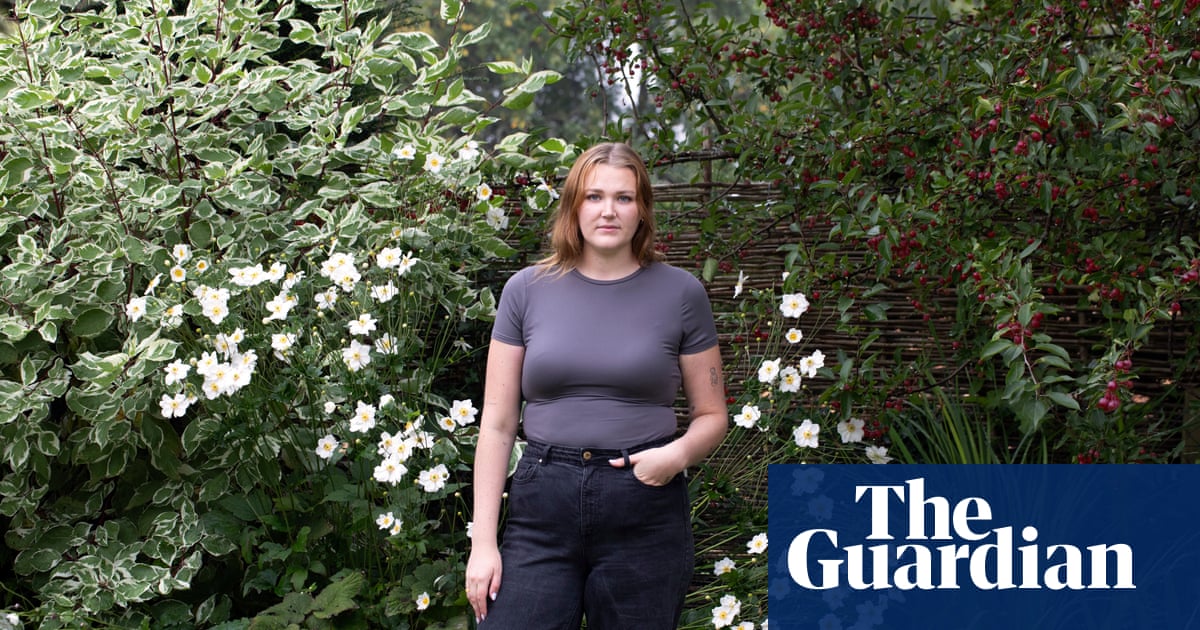A year ago, Franky Dean, a 24-year-old documentary film-making master’s student, decided to make a phone call she’d been avoiding nearly half her life. She was sitting in a dark computer room in New York University’s journalism institute in Manhattan when she FaceTimed her parents. They were in the living room at her home in the UK, where she grew up. Franky told them she’d just filed a police report about something that had happened more than a decade earlier. When Franky was 12, she had been sexually abused by a close friend’s dad.
And then her mum said two words that would change her life, again, for ever: “We know.”
It was meant to be a climactic moment – a revelation that Franky had been building up to for years. Instead, it was the beginning of another story – the unravelling of a shadow narrative that spanned half of Franky’s life. It’s a story about what happens when police assume survivors of sexual abuse to be “unknowing victims” – a series of misinterpretations and missteps that amounted to Franky spending 12 years hiding her abuse from her parents while they spent 12 years hiding it from her.



I don’t think you read the second half of my original comment
I did. Your solution is not acceptable. It is not theoretically possible to give informed consent not to be told, because you unconditionally have to have the details to be capable of making the decision.
It’s pretty simple really
Detective: “Excuse me, I’m Detective so-so, recently we’ve come into some information that indicates something traumatic may have occurred in your past, are you ready to hear the details or would you like some time to prepare?”
Person: “WHAT‽ I’m gonna need some time to prepare, I’ll contact you when I’m ready”
This’ll give those vulnerable time to prepare for a shit storm and those who feel they’ve already adjusted and would rather not hear about it the opportunity to decline
Your attitude is very much “You need to hear about it no matter what or how well adjusted you are. Oh, your brain was able to process the incident without causing any I’ll effect? WELL TOO BAD YOU NEED TO HEAR IT”
Again, not every traumatic incident results in a mental ill effect like PTSD or depression. Some people have more resilient mental stability than others. What of them? What if the disclosure itself is just too much and now they NEED therapy when they could have gone their entire life without worry?
That is not, and does not in any way resemble, informed consent. Informed consent is the only possible valid standard. You cannot possibly be capable of declining to know without knowing what you’re declining.
Informed consent only occurs before the action.
You cannot have informed consent about something that’s already happened to you that you should have been aware of. You can have informed consent on requests to tell you that information relating to the event.
And you can absolutely decline something without knowing what it is. I do it all the time. Phone numbers call me, I hear the brief moment of silence, and then that notorious click of an automatic dialer answering the line. I know immediately it’s a scam caller and I’m not interested so I hang up. That is Informed consent that I’m not interested in whatever they’re about to say, even though I don’t know what specifically they’re about to say.
I do the same thing with my some of my family. If my aunt was to call, I’d decline the call outright. I’m not interested in anything she’s going to say. That’s my right.
Edit: Clarified confusing wording a bit.
Not telling someone they got raped because it’s a bummer is exactly like not telling them they have cancer because it’s a bummer.
The doctor does not have that option. They are required to make sure that you are fully informed of reality.
Informed consent is mandatory for any health care. “Not telling someone to protect them” is an attempted mental health action that cannot possibly be valid without informed consent, which is impossible.
Not telling the victim, for any reason, makes you complicit in the assault. It is not a valid approach to “health”. Denial does not work and is not capable of working. The victim has to know, and cannot possibly have the information required to “choose not to know”.
Anyone with knowledge that a person was raped without their knowledge who doesn’t take steps to make sure they were informed is a monster who deserves many years in prison.
That’s like your opinion man. Good thing you’re not my doctor, nor my kids doctor.
Literally already been explained to you. Yes you can. If I don’t want to hear information from you, I can choose not to. Just like I will now. Welcome to the block-list! See how easy it is? Now you can choose to try to tell me all you want about your opinions and I won’t hear any of them! It’s like it’s a choice that I can make with all the free-will that I have.
Several people have told you it’s possible. Even given you examples of cases where it exists. But you stick your fingers in your ears and scream all you want. I’m not listening anymore.
https://journalofethics.ama-assn.org/article/ama-code-medical-ethics-opinions-informing-patients/2012-07
American Medical Association says you’re full of shit.